




After partnering with the Medical Group Management Association (MGMA) for nearly 50 years, the Alabama chapter has decided to move away from the organization.
Through an affiliation agreement, Alabama has operated as an independent chapter of MGMA, a national healthcare professionals’ conglomerate, since 1976. The state chapters organize and host distinct conferences, maintain separate membership and do not share finances with the national chapter.
In July 2023, the 43 state chapters under MGMA received a letter notifying them of a change in this affiliation arrangement. Three months later, Lisa


Beard, executive director of the Healthcare Leaders Association of Alabama (HLAA), formerly MGMA of Alabama, met with National MGMA members during their conference in Nashville and was told there would be no alterations to
the agreement.
“That wasn’t what we really wanted,” Beard said. “I think in the end, our Alabama chapter knew that financially, support-wise, we would be fine either way, and after analyzing the situ-
ation, we were confident that making this move was the right decision for our members.”
Following the national conference, Alabama’s MGMA Board of Directors felt it was best to move forward outside of the brand to maintain the autonomy of its association in the future. Alabama was one of 17 chapters to leave MGMA to begin a separate organization. Three state associations became subsidiaries after failing to pass a key performance indicator, and the 23 remaining organizations signed the affiliation agreement.
“Alabama is probably one of the strongest, if not the strongest state association in the country. And so for us, there
Grandview Medical Center became the first hospital in Birmingham to begin using Intuitive’s Ion endoluminal system, a robotic bronchoscopy platform, that allows physicians to obtain samples from deep within the lung. They are among the few centers in the state to have this technology.
Paired with shape sensing technology, real-time imaging, and fiber-like optics that make thousands of calculations a second, Tyler Wahl, MD, thoracic surgeon at Grandview, said the Ion helps
with navigating within millimeters.
“That’s important because if you’re talking about the difference in millimeters, for me to hit a lung nodule, those millimeters in accuracy are pretty much what determines whether you’re getting an answer or getting a nondiagnostic result,” Wahl said.
Since Grandview obtained the Ion in October 2023, Wahl and pulmonologist Russell Beaty, MD have performed 100 cases. Wahl said their biopsy accuracy has jumped from 60 to70 percent to 96 percent since using the Ion.
“The accuracy for sub-centimeter

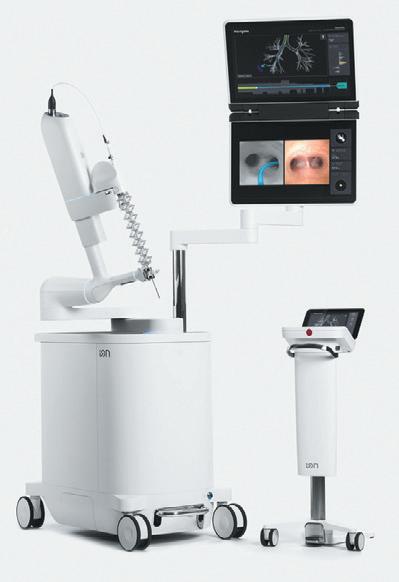






At the heart of one of the most highly regulated industries in the nation, health care facilities and providers face challenges that draw attention and resources away from their mission to provide quality patient care.
Burr & Forman’s health care team works alongside you to address and anticipate your needs by providing preventative guidance and pragmatic solutions, enabling you to focus on providing care and achieving healthy outcomes.
Birmingham | Mobile | Montgomery
Jessie Bekker
Howard Bogard
Richard Brockman
Kelli Carpenter Fleming
Jim Hoover
Catherine “Cat” Kirkland
Angie Cameron Smith

nodules is so much better now with this Ion robotic platform than the prior predecessors. We used to have something that was two centimeters and larger to get a diagnosis with any sort of high percentage marks on the prior platforms that various companies made. But now, the average nodule size is certainly less than two centimeters. My personal average nodule size is 1.3 centimeters,” Wahl said.
Previously, Wahl used one of the several other procedural options when performing a lung biopsy. An example is a percutaneous biopsy, which calls for a physician to guide a needle through the chest under imaging to take a sample of lung tissue. This technique comes with complications such as pneumothorax and pulmonary hemorrhage. Wahl said the Ion’s minimally invasive bronchoscopy
continued from page 1
was a lot to lose if we were to be taken over as a subsidiary because we feel like our value as a state cannot be replicated at the national level,” Beard said. “As we move forward, the HLAA will remain committed to the mission, objectives, and history of our member-driven and member-led association.”
Members include professionals from a healthcare management background, medical salespeople and students who can participate in several educational opportunities. The organization plans to contiue hosting bi-annual conferences with keynote speakers and specialty break-out sessions to support networking opportunities.
“I think our members are very proud of our association. And I think they know that it’s so important to their careers — what they learned, who they networked with. They want us to be successful,” Beard said. “I feel like we’ve really untied our hands in a lot of ways to be able to expand our member benefits.”
Of the MGMA state chapters, Alabama had the most local branches, with 12 in towns such as Birmingham and Cullman. Most local HLAA members meet monthly for luncheons to network with others in the same specialty.
The HLAA winter conference will be held on March 6th through the 8th in Birmingham. Their summer conference will take place a few months later in Gulf Shores.
“‘I’m proud of my board for making this decision,” Beard said. “I think it was the right choice for our members to keep our autonomy. I’m excited for this new chapter. I feel like I’ve even gotten more engaged vendors, more engaged members to really promote who we are. So I think that in Alabama, this will be nothing but a good thing.”
has no pain, no recovery and gets to the part of the lung where you have an interest in exploring.
During a procedure with the Ion, the patient goes under general anesthetics, and a breathing tube is put in the airway. After checking the lung with a small light scope, the Ion’s three-millimeter fiber optic camera is placed, and a virtual roadmap on the computer screen will help guide the doctor to the correct airway. Once completed, a radial endobronchial ultrasound will go down to the same catheter to look at the signal of the lung and potentially find something hard, like a nodule. With the help of the ultrasound, a doctor can fine-tune their angles and approach to begin taking a biopsy.
“When we do that, we’re getting a lot more tissue and samples for the patholo-
from page 1

gist to use because cancer care and receptors on cancers such as immunotherapy is a big topic right now,” Wahl said. “So now we’re able to understand, not just that you have a cancer, we actually can do very personalized medicine by obtaining more tissue, we can run a lot of tests

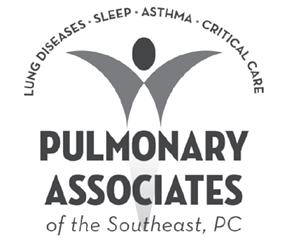


to look for receptor status.”
According to the World Health Organization, lung cancer is the leading cause of cancer-related deaths worldwide, and stage 1 lung cancer can vary from one to three centimeters. With the Ion, healthcare professionals don’t have to leave lung cancer in the body and wait until it grows to biopsy it.
When he was younger, Wahl began considering pursuing a career in the medical field when his grandmother, a nonsmoker, was diagnosed with lung cancer. Through his mentorship at UAB, he fell in love with chest oncology. He aims to progress the lung cancer enterprise at Grandview and was excited to hear about the hospital’s recognition as a top facility for the Go To Lung Foundation last year.





Treatment options for Alzheimer’s have expanded in the past year, with the FDA approval of lecanemab (Leqembi®) in July 2023 leading to Medicare extending coverage for the drug, offering new hope for the nearly seven million people in the U.S. living with the disease. In addition, blood-based biomarkers can now identify the presence of the abnormal Alzheimer protein (amyloid beta) and evidence it is causing damage to the brain, more easily providing a definitive diagnosis.
The UAB Brain Aging and Memory Clinic has been expanding in anticipation of the new drug’s approval, and they are joining 75 research locations across North America to enroll participants in the AHEAD study, which will test lecanemab in people without noticeable symptoms to see if the disease can be delayed or even prevented. Discovering a treatment that targets brain changes early may mean one day preventing memory loss.
“We’ve expanded our clinic in preparation of the anti-amyloid infusion drug,” said Marissa Natelson Love, MD, associate professor, Department of Neurology at UAB. “We now have our own pharmacists,
pharmacy techs, social workers, six nurse practitioners, two nursing care coordinators and two care managers who are managing the folks on the anti-amyloid drug. We are actually ahead of the curve in the US to be able to get the drug to people.”
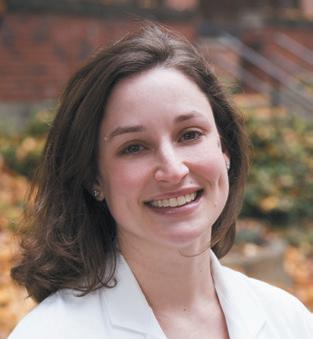
Love said up to 120 symptomatic patients were in the process of being approved for the new drug, and more than 10 are actually receiving weekly infusions. In addition to treating these patients who have been diagnosed with Alzheimer’s, the clinic is seeking patients to enroll in the AHEAD Study.
“We know from prior studies that the amyloid plaque, which we refer to as the toxic brain plaque, can build up for 15 to 20 years before people have any symptoms. At some point, there is a switch that happens, and it begins to break down brain cells,” Love said.
Now that it is proven that lecanemab slows the progression of Alzheimer’s in people already diagnosed, the AHEAD Study will test whether lowering amyloid before symptoms appear can help delay the onset of those symptoms.




“We are looking for people ages 55 to 80 who are asymptomatic, meaning with no cognitive impairment,” Love said. “We screen them with a blood test to look for the toxic amyloid brain plaques, and if they have evidence of amyloid plaques, then we move on to determine how much they have, by doing an amyloid PET scan. If they have a medium or moderate amount, they move into the A3 group and get lecanemab once a month. If they have a high or severe amount of plaque, they go into the same regimen that people who are symptomatic get, and they get it every two weeks. We can’t tell exactly when people will become symptomatic, but the previous study shows that the higher amount of plaque you have, the faster you decline. So that’s why they will get the more aggressive treatment.”
AHEAD is a randomized, controlled trial, so one group of people will get placebo, and all participants will be followed for several years to see if the treatment prevents the onset of Alzheimer’s symptoms.
Testing of a different anti-amyloid drug, donanemab, indicated that at some point patients may be able to come off the


drug when amyloid levels drop. “They actually showed that 30 percent of people in the trial had no amyloid after six months. It was up to 70 percent by 18 months,” Love said. “This is something the field will have to come to consensus on: how often to check to see if we have actually eliminated the plaque and how often we need to give a maintenance drug.
“Most people who are interested in participating in the study have family members with Alzheimer’s and want to get ahead of the disease, if possible. We want to include a higher representation of people who are Black and Hispanic. This is different from the previous studies, which have been 95 percent white. We typically try to get 50/50 men and women, although in general we’ve had fewer men show up at our site.”
Every visit for the study includes a small stipend and a meal. The infusions typically last an hour, after the first day, when patients are monitored for several hours after receiving the drug. Those who are interested can visit the website AHEADstudy. org or call 1-800-AHEAD-70. The website takes them through pre-qualification questions. If you qualify, you’ll be referred to a local research coordinator.









How do you know if you are suffering from vein disease?
Answer these questions:
• Do you have ankle and/or leg swelling?
• Do you have a dull ache or heaviness in the legs after standing or sitting for long periods of time?
• Do you have tired legs?
• Do you have enlarged veins close to the surface of your skin?
• Do you have changes in skin color including brown, red or pink areas?
• Do your legs feel leathery or itchy?
Under the direction of Dr. Tom Eagan, Deborah Riemer, PAC, RPhS and Kathy Sentell, PAC, RPhS, our team is committed to treating your leg pain, diagnosing your condition and working with you on a solution for recovery. Call for your evaluation today.
Tom Eagan, MD
Deborah Riemer, PAC, RPhS
3980 Colonnade Pkwy. Birmingham, AL 35243 205-541-6074
Tom Eagan, MD
Kathy Sentell, PAC, RPhS 5295 Preserve Pkwy., Ste. 270 Hoover, AL 35244 205-949-9289
3400 Hwy 78 E, Ste. 406 Jasper, AL 35501 205-949-9289


In its simplest form, value-based care (VBC) represents a shift from the traditional healthcare delivery model designed around a reimbursement concept tied to quantity of services (i.e., fee-for-service) to one focused on the true quality of the care provided, including an emphasis on the overall health of the patient. This shift offers exciting potential to both patients and providers. VBC-based concepts are designed to promote flexibility and spur innovated approaches.
As providers implement new approaches or models outside the traditional fee-for-service framework, they may find new operational, cultural or legal obstacles that the “standard playbook” does not address.
Here are five key areas that warrant careful consideration when entering into VBC arrangements.
Anti-Kickback Statute and Stark Law: Developed to combat healthcare fraud and abuse, the federal Anti-Kickback Statute and Stark Law prohibit healthcare providers from offering or accepting
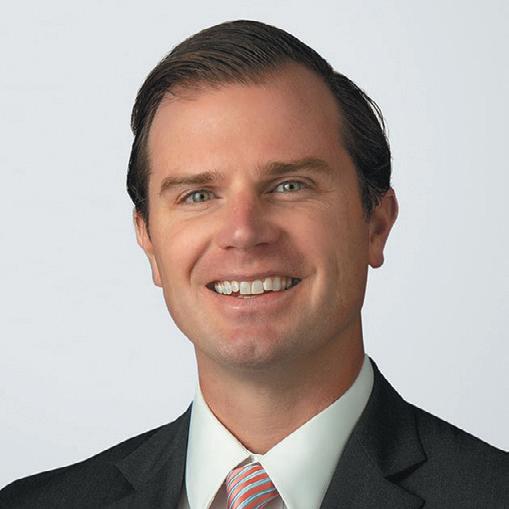
financial incentives in exchange for patient referrals or ordering certain healthcare services. In a VBC model, where financial incentives may be tied to improved patient outcomes or shared savings, the arrangement must be carefully structured to ensure compliance with these laws as well as similar state antikickback, self-referral and fee-splitting laws. Failure to do so can result in substantial civil and criminal penalties and adverse legal consequences.
Data Privacy and Security: VBC relies heavily on the collection, analysis and
sharing of patient data to drive patient care decision-making, assist in the coordination of care and measure outcomes. The increased use of data inherently raises risk regarding data privacy and security. Healthcare organizations must comply with stringent regulations such as the Health Insurance Portability and Accountability Act (HIPAA) to protect patient information as well as state privacy and security laws. Any mishandling or unauthorized access to patient data can lead to reputational damage, legal actions and significant penalties for violating HIPAA.
Accurate risk adjustment is crucial in VBC models to ensure fair compensation based on the severity of patient conditions. There is a risk, however, of intentional or unintentional upcoding or inaccurate coding practices that can result in inflated reimbursement and potential legal liability, including False Claims Act liability. It is essential for healthcare organizations to have robust documentation and coding processes in place to support the accuracy of risk adjustment calculations, including how diagnoses are identified and included

in risk adjustment.
Provider Network Arrangements: VBC often involves establishing provider networks or accountable care organizations (ACOs) to coordinate and deliver comprehensive care. The formation of these networks may involve complex contractual arrangements and require compliance with federal and state laws, including antitrust regulations as well as state insurance licensing requirements for acceptance of risk. Healthcare organizations must navigate these many state and federal legal requirements to avoid violations and legal challenges related to anti-competitive behavior or monopolistic practices. In addition, it is vital to structure risk-sharing arrangements in compliance with applicable state insurance laws.
Patient Engagement and Informed
Consent: In a VBC model, patient engagement and involvement are critical to achieve desired outcomes. However, implementing patient engagement strategies may raise legal concerns related to informed consent and patient rights. Healthcare providers must ensure that









“Cholesterol is not just high or low LDL. It’s not a simple number based on a reading,” says cardiologist Saema Mirza, MD, with Cardiovascular Associates (CVA). Studies continue to uncover numerous other factors that influence the appropriate medical approach for controlling this fatty substance produced in the liver and carried through the bloodstream.
“It is not just lifestyle and diet alone. We know it’s genetic,” Mirza says. “It’s the way your body metabolizes cholesterol.” Even the expected influences based on gender, age, and lifestyle can be deceiving. For instance, among her patients, Mirza has seen active, healthy 20-year-olds with LDLs over 300.
The danger of high cholesterol lies in its building up as a plaque in arteries that can inhibit blood flow enough to cause numerous problems, including heart attacks and strokes. Worldwide, one-third of ischemic heart disease and an estimated 2.6 million deaths can be pinned on high cholesterol, according to the World Health Organization.
Currently, the reigning treatment for controlling cholesterol is statins. Taken as a pill, these medications decrease the liver’s
















production of cholesterol while increasing its ability to remove LDL from the blood. Approved by the FDA in 1987, statins have become so popular that by 2012, 93 percent of adults taking a cholesterol-lowering medication used a statin. As of 2023, nearly 39 million Americans take a statin daily, according to the CDC.
“Diabetics all need to be on statin no matter their LDL level, because they are at an extremely high risk for coronary heart disease (CHD) and a lot of them have silent heart disease,” Mirza says. Anyone with LDLs over 190 or with atherosclerotic cardiovascular disease (ASCVD), which includes heart attacks, ischemic strokes and vascular disease, also fall into this category.
For patients outside those three parameters, physicians can calculate the 10-year mortality risk using the American Heart Association’s formula which generates the risk percentage of having a cardiovascular event within 10 years. The outcome depends not just on the patient’s total cholesterol, age, and gender, but also race and smoking history. If the score comes to 7.5 percent or higher, high-intensity statins need to be prescribed.
If a patient scores between 5 and 7.5, then a calcium score can help to






 Saema Mirza, MD
Saema Mirza, MD
define the risk. This test can also help convince patients who need to consider taking statins for any reason. Patients who generate a calcium score more than zero, should be prompted to consider taking a statin, since more calcium in the blood means a greater risk of artery-blocking plaque. “If the calcium score is zero, statin therapy may be delayed, except in diabetics, smokers, etc.,” Mirza says.
Other conditions that up the need for statins should be considered no matter the outcome in either the calcium or the mortality risk evaluations. Besides LDLs over 160, those risk factors include metabolic syndrome, chronic kidney disease, pre-
eclampsia, early menopause, rheumatoid arthritis, HIV, and South Asian ethnicity.
Should statins not be working to keep a patient’s LDL below 100, then add ezetimibe, which only comes in a 10 mg dosage. This medication directly reduces the amount of cholesterol absorbed from food. “Combined with a statin, these two are great for additional lowering of LDL,” Mirza says.
Should statins prove ineffective by themselves, a stronger alternative to ezetimibe is PCSK9 inhibitors. The PCSK9 protein regulates how many LDL receptors reside in the liver. People naturally high in this protein are more likely to have high cholesterol. The current PCSK9 inhibitor on the market, Repatha, is given every two weeks by injection. “It really lowers LDL levels,” Mirza says. “The data is robust, but it is very expensive, so for that reason, statins are the first line of treatment.”
The inhibitor injections also works well on its own for those with statin intolerance. “You have to be really sure someone is statin intolerant, though, because everyone has aches and pains,” Mirza says. Statins have gotten a bad reputation for intolerance, so patients’ internet searches can spark a hyper-awareness
(CONTINUED ON PAGE 13)













































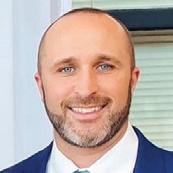











UAB Medical West , as a community hospital, knows how important it is to have quality care close to home. That’s why we’re thrilled to open our brand new state-of-the-art facility right off of I-459 at Exit 1 this August. In addition to our current services, the new facility will allow us to offer robotic surgery, more beds in our Intensive Care Unit and Operating Room, and the newest state-of-theart imaging technology including 3-D mammography. It’s just one more way we can continue to bring the highest quality of care to the communities in West Jefferson County. For more information about our services near you, visit us online at medicalwesthospital.org .
“When it comes to diabetes and cardiovascular risk factors in general, it takes a village to dial people in so they will avoid my cath lab in 10 or 15 or 20 years,” said Jason Thompson MD, PhD, cardiologist at Birmingham Heart Clinic.
Thompson says new diabetes medications offer promise for cardiac care as well as diabetes, and he encourages physicians across specialties to communicate better and work together for the benefit of their patients.
“The reality is, we don’t have enough endocrinologists to take care of a population that’s getting older with an increased prevalence of diabetes,” he said. “So I don’t think initiation of these drugs falls just to endocrinology or just to primary care or cardiology. We should all be thinking about them. Sometimes doctors say they don’t want to step on the primary care providers’ toes, but I don’t think that applies here because, at the end of the day, we want people to have great care. Today, it’s easy to shoot a text or call your patient’s general physician and say,


‘I’m thinking about this for your patient.’ We should all be thinking about it.
“While the field of cardiology has been dynamic, the risk factors haven’t changed: smoking cessation, blood pressure control, cholesterol control and diabetes. But the exciting thing is our tools have improved.
“We are in the golden age of diabetes therapies. In the last five to seven years, we’ve seen several different classes of diabetes medicines come on the market. They not only improve glycemic control, but they offer direct cardiovascular benefits as well, independent of the glucose-lowering
effects. That’s particularly exciting for us, for a couple of reasons: first, there is an epidemic of type 2 diabetes in this country right now, and we are in a better position to deal with that. And second, diabetes, perhaps outside of smoking, is the single greatest risk factor driving coronary disease in this country. So having these two new tools is a wonderful thing.”
Thompson explained how the two primary classes of new diabetes medicines offer different benefits for cardiac patients.
SGLT2 inhibitors, including Jardiance®
“These lower the threshold in the kidney for excreting glucose,” he said. “In lowering that threshold, we excrete sugar, and that lowers our blood sugar. That particular class of medication has been shown to be beneficial to patients with heart failure.
“There are other benefits. It’s a good diabetic medicine, and because you are losing sugar in your urine, there is a weight loss benefit. But independent of those things, it has also been shown to
reduce heart failure readmissions. I can’t think of a new heart failure medication that has hit the market and taken it by storm in more than a decade.”
Since these medicines increase glucose in the urine, it’s important to watch for UTIs, particularly fungal infections.
GLP-1 receptor agonists, including Ozempic®
“This group of medicines has been shown to decrease cardiovascular events,” he said. “These are more ischemic-type events like nonfatal myocardial infarction, stroke, death from a cardiovascular event.
“In particular, the stroke reduction is huge. Nothing scares me more than a stroke in one of my patients, because they tend to be so final. There’s nothing we really can do other than speech therapy and physical therapy and occupational therapy. Now we have a group of medicines that can lower cardiovascular events, particularly stroke. I think that’s very exciting.”
Nausea is the most significant side effect of this class of medicine. “There’s



















A concierge approach with the focus on your comfort and care from check-in to discharge, including complimentary valet parking. At Surgical Institute of Alabama, you avoid the rigors of a hospital while experiencing proven, clinical excellence.
Interventional cardiologists are more often choosing transcarotid artery revascularization (TCAR) over carotid endarterectomy or transfemoral carotid artery stenting to treat obstructive carotid artery disease, according to James Trimm, MD, interventional cardiologist at Birmingham Heart Clinic.
TCAR, originally approved in 2015, has been approved for more patients over time. “Our option is TCAR first, endarterectomy or transfemoral stenting second,” Trimm said. “Most interventional cardiologists opt for TCAR first, whereas a vascular surgeon may choose endarterectomy first.
“Carotid endarterectomy is an open surgery which for many years was the standard of care. It’s a good procedure, but it’s the most invasive. A surgeon does a cut down to the artery, exposes the artery and then removes the plaque. The surgeon then sews the artery closed and sews the skin back closed. That was the only option for many years.”
Transfemoral carotid stenting is an-
 James Trimm, MD
James Trimm, MD
other treatment option, but for years it has been limited to patients who are too high risk for surgery or was used for patients in clinical trials.
Trimm sees TCAR as a hybrid of stenting and endarterectomy. “What makes TCAR so attractive is that it has a smaller incision, a faster recovery, the same or less risk of stroke, and it’s cost effective compared to surgery and stenting, and is also a quicker procedure to do than either endarterectomy or stenting through the groin,” he said.
TCAR reverses blood flow during
the procedure, pulling debris away from the brain and lowering the risk of stroke. “What makes it a better procedure is that you put a sheath in the femoral vein in the groin, and you are reversing blood flow,” Trimm said. “One sheath is in the artery in the neck, and the other is in the vein in the leg. The pressure difference causes reversal of flow. That’s why there is such a low risk of stroke.
“Filters have lowered the risk of stroke in transfemoral stenting and therefore improved the outcomes in stenting, but the manipulation of the catheter, the filter, and the stent increased the risk of stroke. TCAR eliminates these issues, which is why it is rapidly being accepted as the go-to procedure and may soon become the standard of care.”
While a number of patients come to Trimm with some testing done by the referring physician, others are sent to his practice in order for him to do the testing, interpret the data, and determine the course of care. “TCAR has the same indications as endarterectomy or transfemoral stenting” he said. “Usually if a patient has blurred vision in one eye or

We put you in touch with A.M. Best A-rated mutual companies at competitive rates. Then
weakness on one side, they get a carotid doppler, and it is sent to us to interpret. Classic Indications are people who have symptomatic obstructive carotid artery with narrowing of 70 percent or greater.”
There are certain anatomical requirements for choosing the TCAR procedure. “The length between the clavicle and where the blockage is has to be greater than 50 mm,” Trimm said. “In TCAR, you go through the common carotid artery vs the femoral artery, and you have to have a place to land the delivery sheath.
“The TCAR surgery is still considered inpatient, requiring an overnight stay. In my opinion, that’s a purely insurance-driven decision. All carotid procedures are still coded as inpatient procedures. The patients are awake and mobile and doing quite well the day of the procedure. Most patients could go home the same day.”
Following the procedure, Trimm sees his patients with a carotid doppler a month after the procedure, and he typically follows up with a carotid doppler every six to 12 months. He has found that the rate of
(CONTINUED ON PAGE 13)




patients are adequately informed about their participation in VBC programs, the potential risks and benefits, and the patient’s right to opt in or opt out. Failure to obtain proper consent or address patient concerns can result in legal disputes and erosion of patient trust. Furthermore, it is vital to ensure that providers participating in VBC models – such as providers providing care coordination and remote patient monitoring – are operating in compliance with any state law requirements applicable to licensing and scope of practice.
While VBC holds promise in transforming healthcare delivery, it is essential to address the associated legal pitfalls. Compliance with laws such as the AntiKickback Statute, Stark Law, HIPAA and
from page 7
antitrust regulations, as well as similar state laws including state insurance laws, fraud and abuse laws, fee-splitting rules, and privacy and security laws and regulations, is crucial. Healthcare organizations must also prioritize data privacy and security, ensure accurate risk adjustment, establish compliant provider network arrangements and engage patients while respecting their rights. By proactively addressing these legal challenges, stakeholders can navigate the transition to VBC and contribute to a more efficient and patient-centered healthcare system.
Daniel Patten is a partner in Holland & Knight’s Nashville, Tennessee, office. Jennifer Rangel is a partner in the firm’s Austin, Texas, office.
of aches and pains that get attributed to statins.
“True statin intolerance is actually extremely rare,” Mirza says. “In clinical trials, as many people on placebos complained of aches and pains as on statins. If a patient and physician think there is an intolerance, I recommend stopping the medication and waiting until the symptoms abate. Then begin the statin again at a lower dose because it is so im-
FOCUS TOPIC CARDIOLOGY
continued from page 8
portant to take them.”
Mirza has also found that during that week or so when the patient is off statins have them take coenzyme Q10. Then keep them on the coenzyme when they restart the statin at the lower dose. “A lot of the time, the patients who said they couldn’t tolerate statins, are able to take them with CoQ10,” Mirza says. “Studies do show that it works. We just don’t yet really know how.”
some dietary things you can do to offset that,” he said. “It slows down your digestion so food stays in your stomach longer. It decreases appetite. If you overeat, you are going to have nausea, so you’ll need to eat smaller meals.”
Thompson says the side effects are minor compared to the cardiac protections these medicines provide, and he encourages physicians to consider whether their patients will have preventive benefits
FOCUS TOPIC CARDIOLOGY
from them.
continued from page 10
“Sometimes as cardiologists, we get so focused on the fix, that we lose sight of the prevent,” he said. “There are so many things we can do now that we couldn’t tackle even ten years ago for more complex coronary disease, peripheral disease and all these things. The single most important thing we can offer patients is prevention.”
continued from page 12
reoccurrence is lower when compared to the transfemoral approach.
“Typically, the patient will be on dual anti-platelet therapy and cholesterol-lowering medicine ten to14 days before and 30 days after the procedure. One of the anti-platelet medicines is typically discon-
tinued after 30 days,” he said.
Trimm believes TCAR will soon become the standard of care for carotid artery disease. His practice is approaching 200 of the procedures, and he anticipates that number will continue to grow.















Learning young that you’ll never be able to give birth to your own baby can be devastating. Whether you were born without a uterus or with a malformed one, or lost it to illness or injury, uterine factor infertility is a daily sorrow that becomes a heartbreaking loss when you fall in love with someone who wants their own genetic child.
Fortunately there are multiple ways to build a family, and for women without a uterus, what was impossible three years ago has become a reality with the birth of the first three infants gestated to delivery within a uterus successfully transplanted into their mother through the new UAB Uterine Transplant Program. The program is the first of its kind in the Southeast, and only the fourth in the United States.
“It’s also the first non-research program of its kind in the country, which means the data we gather here can take uterine transplants beyond investigative procedures to begin consideration as an established procedure on its way to-
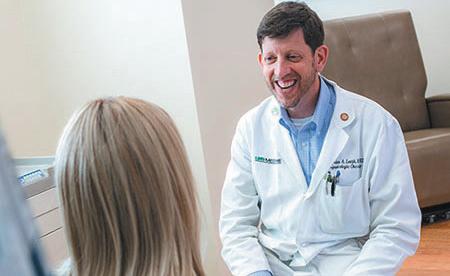
ward qualifying for insurance coverage,” transplant surgeon and immunologist Paige Porret, MD, PhD, Associate Professor of Surgery in the UAB Division of Transplantation and Comprehensive Transplant Institute, said.
A baby boy was the program’s first successful delivery during the summer, with two more infants arriving since and






other patients at different stages of the process of becoming mothers with the help of the transplant program
To be considered as a candidate for uterine transplant, a woman should be in good health and between the ages of 19 and 40.
“Going from applying to the program to holding your baby in your arms
can take a while and involve unpredictable waiting,” Porret said. “It’s so difficult when older patients come to us hoping we can help, but as of now, we have to give each of our candidates the best possible change of a good outcome. Someone who begins at forty would be at the outer limits. We would actually have to look closely at someone who is thirty-five. Sooner is better is the takeaway for anyone considering the procedure and for physicians who are thinking about referrals. We are hoping that as we learn more and streamline the procedures that we will have more latitude on age range.”
Charles Leath, MD is director of the Division of Gynecologic Oncology. He and his fellow surgeons, because of their highly detailed skill set in gynecology surgery, are often called on to perform the multiple procedures involved, from acquiring donated organs to removing them when they are no longer needed.
“While patients generate embryos
(CONTINUED ON PAGE 16)


From laser hair removal, to vitamin injections, these days patients are looking beyond traditional medical intervention to achieve “wellness” — and for some providers, offering services to patients who want to boost their vitamin intake and achieve a glowing complexion can be a way to show their patients that health extends beyond treating runny noses and broken bones. Enter medical spas: bastions of rejuvenation, with a medical twist. Before opening the doors to a new medical spa, there are a few legal points you may want to consider, including new state regulations with which providers have until July 2024 to comply.
What is a medical spa?
Medical spas, also called med spas or medi-spas, are medical clinics that combine spa services, like facials, with medical treatment. Treatment options are typically offered on a walk-in basis and vary from laser hair removal, to sun or age spot laser treatment, to intravenous, or IV, hydration and vitamin-boosting therapy. Unlike traditional physician clinics, medical spas typically operate as retail clinics and tend to cater to people who want to improve their overall wellness or seek to enhance their appearances.
How are medical spas in Alabama regulated?
The Alabama Board of Medical Examiners has issued declaratory rulings and regulations related to the regulation of certain services typically found in medical spas, including IV therapy and laser treatment. In both instances, involvement from a physician or an advanced practice practitioner in a person’s diagnosis and treatment is required to comply with state law.
I’m interested in offering IV therapy. What do I need to know?
IV therapy often includes a range of services, from basic administration of saline for the stated purpose of improving hydration, to administration of vitamins, like vitamins B, C and D and calcium, and some prescription medications, like Toradol (an anti-inflammatory) and Zofran (an anti-nausea medication). The IV “cocktails” are typically recommended to patients based on their stated goals and after completion of a general health screening.
The Board of Medical Examiners regulates the prescription of IV therapy as the practice of medicine. Therefore, IV therapy must be performed either by a physician, or by a licensed physician assistant (“PA”), certified registered nurse practitioner (“CRNP”) or certified nurse

midwife (“CNM”) practicing under the required level of physician supervision. In fact, the Board has advised that the diagnosis of a patient’s condition and subsequent recommendation of IV therapy constitutes the practice of medicine and falls outside the scope of practice for a registered nurse (“RN”).
The Board of Medical Examiners has also advised that “standing orders” issued by physicians for use by RNs do not satisfy the involvement required by a physician, PA, CRNP or CNM.
Before starting your medical spa business and providing IV therapy, consider
the below list of legal do’s and don’ts.
• Do: Require the involvement of a licensed physician or a licensed PA, CRNP or CNM working under the supervision of a licensed physician.
• Don’t: Issue standing orders for use by other provider types, like RNs or chiropractors.
• Do: Create a patient-physician relationship with each person seeking IV therapy.
• Don’t: Establish a business in which the physician providing care is unable to act in his or her own independent medical judgment.
• Do: Create a medical record for each patient and document patient information in a manner compliant with state and federal laws and regulations.
I want to open a medical spa that offers a roster of laser treatments. What do I need to know?
New regulations issued by the Alabama Board of Medical Examiners that took effect July 15, 2023 instituted certain practice and training requirements of physicians and advanced practice practitioners who offer surgical, therapeutic and cosmetic services to patients. Providers have until July 17, 2024 to become fully compliant with the Alabama regulations.
Generally, laser treatments that affect living issue are regulated as the prac-
tice of medicine (though certain medical professionals, like chiropractors, dentists, occupational and physical therapists and optometrists are exempted from the regulations).
The regulations apply to a broad swath of procedures, including: ablative laser skin resurfacing, non-ablative laser photorejuvenation, laser hair removal and vascular procedures, like treatment of varicose veins, rosacea, age and sun spots and other lesions, tattoo removal, liposuction, cryotherapy and certain micro-needling.
Like IV therapy, physicians can delegate certain non-ablative laser treatments to advanced practice practitioners, like PAs, CRNPs and RNs (called “Level 1 Delegates” under the regulations) and even licensed practicing nurses (“LPNS”) and medical assistants (called “Level 2 Delegates”) through the use of written protocols that comply with the regulations. Delegating physicians must supervise all delegated, non-ablative procedures, either on-site or, in certain circumstances, remotely.
Potentially most impactful for physicians and delegates offering laser treatment are the new training requirements. Under the new Alabama regulations, physicians must complete at least 30 hours, and delegates 40 hours, of initial training. Of those hours, training must cover topics


through IVF, the wait begins for a suitable donor organ,” Leath said. “Some programs accept a uterus from a volunteer or a relative. However, our program only works with organs from deceased donors at this time. The donor should be a healthy woman in her childbearing years. Ideally it’s good to see if she has delivered a child so we know the organ is functioning well, but a healthy organ would be considered.”
The same factors involved in any transplant would be part of the procedure, and the patient would be placed on anti-rejection medications and followed closely.
“After about six months if all is going well, the surgery should be healed and ready to implantat one of the embryos generated earlier through IVF,” Porret said. “We only transplant one since attempting to carry twins would add to the burden and make it a higher risk pregnancy. We have more embryos on stand-by in case the first doesn’t implant or if the parents want to follow
continued from page 14
with a second pregnancy.”
Leath said, “Both mom and baby are monitored very closely through the pregnancy and we schedule delivery by caesarean as near as possible to the natural due date, but slightly earlier to allow more control. If everything has gone well during this pregnancy and the parents want another child, we can allow the uterus to heal and implant another embryo. After delivery of a second child, we would perform a caesarean so that antirejection medications can be discontinued.
As of now, the biggest factor facing future transplant programs that are not funded as part of a research grant is the cost. Although couples at UAB have been fortunate to find some financial assistance, that won’t always be the case.
“We hope to help establish transplants as non-investigative procedures so a case can be made for insurance coverage. It shouldn’t take a miracle to have a uterus. Where there is a need, there should be hope,” Porret said.
from page 15
including the theory and physics of laser procedures, education on skin anatomy, physiology and disease, safety training and training on the Board of Medical Examiners’ rules. The initial training requirements apply to physicians who obtained Board registration to provide laser treatment after January 1, 2024.
In addition, physicians and their delegates may have to comply with certain device-specific training and supervision requirements—even if physicians received training in residency, although the additional training required may be reduced.
The new Alabama regulations cover several other issues, including quality assurance, employment of substitute physicians and registration requirements with
the Board of Medical Examiners. The regulations can be found at Ala. Admin. Code § 540-X-11. The Board maintains a guide for physicians providing laser treatments at https://www.albme.gov/licensing/md-do/registrations/use-of-lasers/.
The Board of Medical Examiners is taking an interest in Alabama’s medical spa industry. Before taking a dive into this new business opportunity, consider the legal framework for providing patients with “wellness” services.
Jessie Bekker is an attorney at Burr & Forman LLP, practicing exclusively in the firm’s healthcare practice group. Jessie may be reached at (205) 458-5275 or jbekker@burr.com.


Children's of Alabama pediatric neuroradiologist, Fabricio Goncalves, MD, has received the Walter E. Berdon Award from The Society for Pediatric Radiology for his research to determine the performance of ADC histogram metrics for differentiating medulloblastoma variants. The paper was published in Pediatric Radiology.
Originally from Brazile, Goncalves has specialized training in MRI and neuroradiology, having completed two fellowships at the University of Brasília. Additionally, he has pursued a Neuroradiology Fellowship at McGill University in Montreal and a Pediatric Fellowship at both SickKids in Toronto and the Children's Hospital of Philadelphia. His experience also includes four years of Research Fellowship at the Children's Hospital of Philadelphia. He holds a Eu-
Kassouf has new roles for four team members.
Ashley Hudson and Bridget O’Neal, both of whom are CPAs, have been promoted to managers.
Hudson graduated from The University of Alabama with a Bachelor of Science in Commerce and Business Administration and a Master of Accountancy. She joined Kassouf’s Healthcare Group in 2017. In addition to her work in accounting, tax, and advisory services, she participates on Kassouf’s recruiting committee.
O’Neal double-majored in accounting and music at Birmingham-Southern College and is currently pursuing a Master of Business Administration at The University of Alabama in Huntsville. She joined Kassouf’s Business Services Group in 2018. She chairs the firm’s Employee En-


 Fabricio Goncalves, MD
Fabricio Goncalves, MD
ropean diploma in neuroradiology and pediatric neuroradiology. Since August of 2023, he has been working as a pediatric neuroradiologist at Children's of Alabama.


gagement Committee and is a member of Kassouf’s recruiting team.
Anna Mooney has returned to the firm as a manager in Kassouf’s Estate Planning and Administration Group. Mooney holds a Bachelor of Science in Commerce and Business Administration and a Master of Accountancy from the University of Alabama. She specializes in trust and estate administration, accounting, tax compliance, and payroll tax compliance.
Mike Payne is Kassouf’s first business advisor. While Kassouf has employed healthcare advisors for over 20 years, Payne is the first professional devoted to advisory services for industries outside of healthcare. He earned his undergraduate degree in accounting from the University of Montevallo.

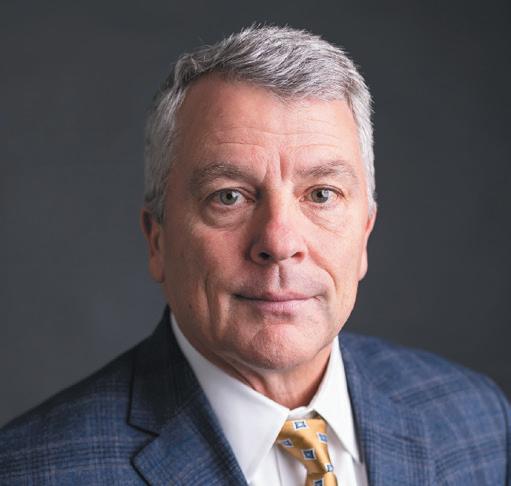


If you suffer from allergies or other ear, nose, throat or hearing problems, we
want you to treat your healthcare lightly or ignore symptoms that could lead to more serious issues. Call us now for a complete evaluation with one of our 15 board certified physicians, 4 highly trained and licensed PAs, or 16 clinical audiologists — all available to serve your needs at any of our 10 locations.



The slightest errors, delays, and oversights lead most surgeons to miss out on revenue. Surgical Pathways has proven to capture tens of thousands of overlooked dollars per surgeon lost in the complicated prep and process of tracking and billing procedures.
It adds up.
Created and constantly adapted with the input of the surgeons themselves, Surgical Pathways tracks every needed step to prepare, perform, and bill for each surgical procedure. Know in a glance when and who is responsible along the way for anything from pre-certs, medications, and clearance to claims. All automated.
A customizable software that works with your existing EHR/PM system.




David McLain, MD, FACP has been elected to the Royal College of Physicians (RCP) for his contributions to the medical industry. Established in 1518, RCP is the oldest medical college in England and has a fellowship community of more than 18,000 medical leaders worldwide.
McLain is the Symposium Director of the second largest annual rheumatology meeting in the U.S., the Congress of Clinical Rheumatology East in Destin, FL, and West in San Diego, CA. He is also the Executive Director of the Alabama Society for Rheumatic Diseases.
McLain received his medical degree with honors from Tulane Medical School. He was a medical resident, Rheumatology fellow, and an NIAID trainee in Immunogenetics at Barnes Hospital and Washington University in
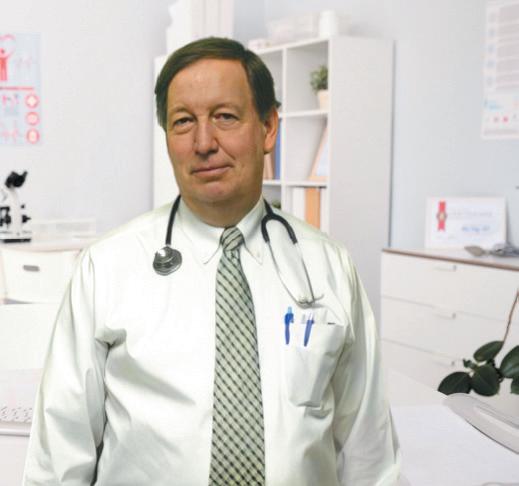 David McLain, MD, FACP
David McLain, MD, FACP
St Louis, and joined the faculty of Washington University School of Medicine before moving to Birmingham where he currently resides as the owner of McLain Medical Associates.
Alabama physicians say a new federal rule may help patients in governmentsponsored health programs get more timely treatment, but action is needed at the state level that applies to private insurance plans. Under the new federal rule, health insurers that participate in Medicare Advantage, Medicaid and the Children’s Health Insurance Program would have to respond to prior authorization requests faster and include specific reasons for denying requests.
“Prior authorization is a bureaucratic mess and patients pay the price,” said Mobile physician George Koulianos, MD, who serves as President of the Medical Association of the State of Alabama. “Imagine forcing a patient with a severe illness to wait days or weeks for
authorization from an insurance company to start treatment. Now imagine a doctor having to employ multiple backoffice personnel just to manage that insurer-imposed burden. This new federal rule is a step forward, but we also need action at the state level.”
A survey by the Medical Association found that physicians are deeply concerned about prior authorization requirements delaying necessary care, with one-third of physicians and clinical staff spending nearly an entire workday each week on prior authorizations alone. Not surprisingly, 76 percent said the time spent on prior authorizations means they see fewer patients in a day, reducing access to care and further fueling burnout in the medical profession.
The need for psychiatric beds in Alabama is so acute that East Alabama Health had to reject nearly 500 mental health patients in 2021.
In an effort to alleviate this problem, East Alabama made the decision to build a new freestanding psychiatric hospital, and they recently held a groundbreaking for their Center for Mental Health, which is set to open in Fall 2025. The 54,000-square-foot psychiatric hospital will be situated in the Village Professional Park, between the Spencer Cancer Center and Pinnacle Cardiovascular Associates.
The $30 million project will include 40 beds, all in private rooms, an increase from the current mental health facility’s 28 beds, and will have dedicated spaces for the inpatient units for patients with varying short-term and long-term needs. The expansion will also house the East Alabama Psychiatric Services

(EAPS) outpatient clinic.
There is an urgent need for more psychiatric facilities in Alabama because since 1955, the state-funded psychiatric beds have declined by 97 percent, while emergency department visits related to behavioral health have risen by 44 percent since 2006.

In December, Marnix E. Heersink, MD committed an additional $5 million to his transformational $95 million gift that named the UAB Marnix E. Heersink School of Medicine in 2021, bringing the total gift to $100 million. The gift was already the single largest philanthropic commitment in university history.
The Heersink gift will ultimately support the creation of as many as 20 new endowed positions to enhance the recruitment of elite faculty. In the first year of the gift alone, the Heersink School of Medicine established and awarded five Heersink Endowed Chairs and one Heersink Endowed Professorship.
Heersink is a Dothan eye surgeon, and entrepreneur who has served on the boards of the Alabama/Florida Council of Boy Scouts and the Alabama Institute for the Deaf and Blind. His wife, Mary Heersink, is a longtime member of the Heersink School of Medicine’s Board of Visitors, as well as the Advisory Board of the Master of Science in Global Health Program, a joint initiative among McMaster University in Canada, Maastricht University in the Netherlands, Manipal University in India and Thomassat University in Thailand.





